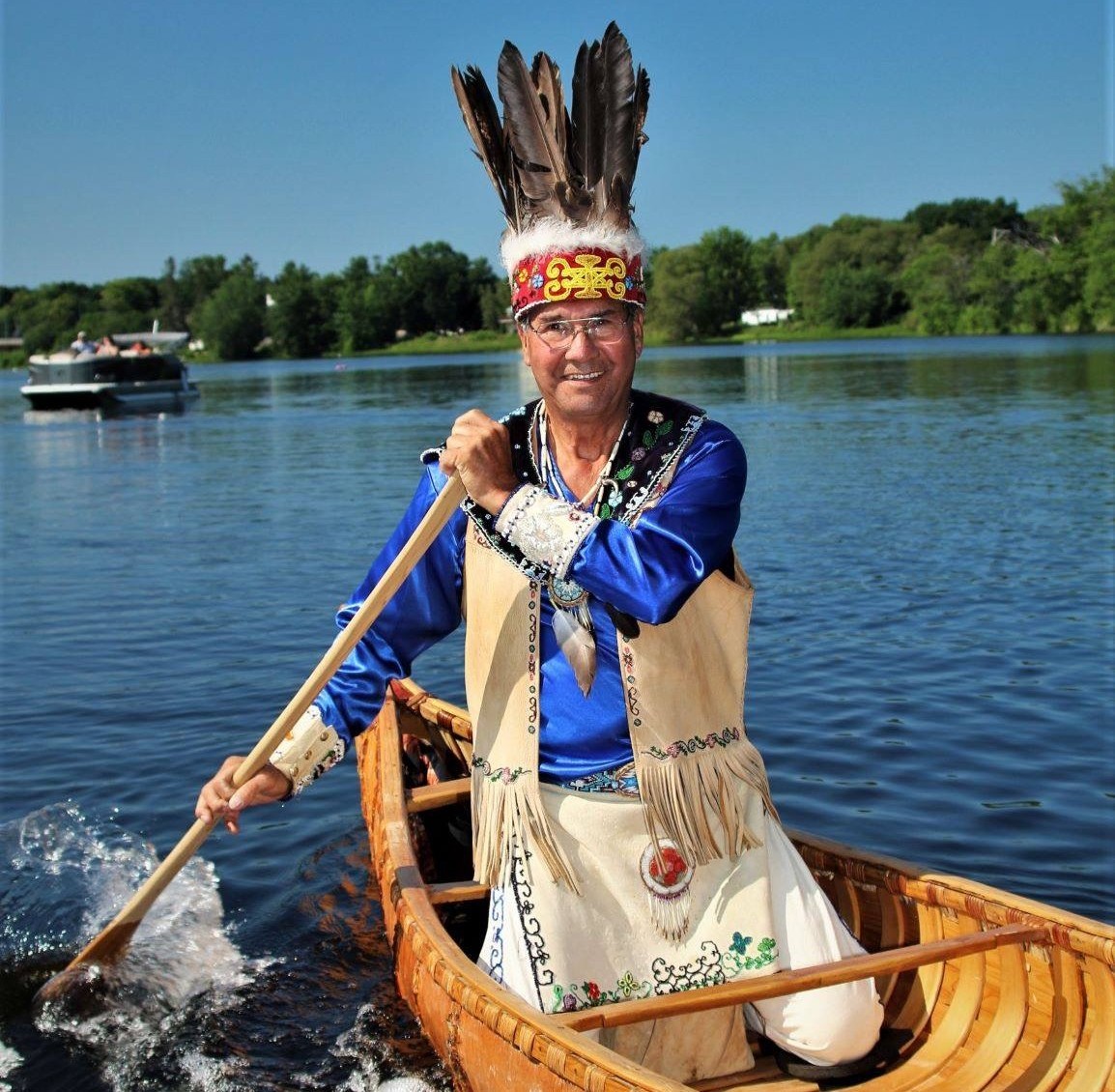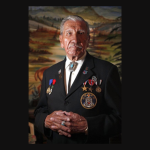Reuben “Butch” Phillips, a Penobscot Nation elder, former government official, and spiritual leader died late Sunday night at a Bangor hospital surrounded by his family. They had said their farewells and were present for his passing into the realm of the ancestors, where he joined his beloved wife, Linda, and his sister Lorraine Dana. He was 85 — but even up to the end Phillips seemed at least 20 years younger.
The Penobscot Nation community of Indian Island mourns his passing and is planning a tribal celebration of his life Saturday, August 2 at the Penobscot Nation.
“Much will be said this week about his life, work, service, and great endearing love for our people,” Wabanaki Alliance Executive Director Maulian Bryant said in a personal tribute to her great uncle. “I knew him as a leader and as a family man. He was generous with me with his knowledge and experience, as he was with all people — I just had the advantage of being family. He gave so much to the Penobscot Nation. He showed up: Every time. With his beautiful prayers, dancing like someone half his age, with his passionate words, wisdom and gentle steady heart.”
Born and raised on Indian Island, Phillips served in the U.S. Army following his high school graduation. His career as an electronic and radio technician was spent with AT&T and New England Telephone. He and his wife lived in Milford, across the Penobscot River from the Penobscot Nation Reservation on Indian Island.
He served the Penobscot Nation as one of the tribal negotiators for the Maine Indian Claims Settlement Act of 1980, as Penobscot Nation Tribal Representative from 1981 to 1982, as lieutenant governor from 1983 to 1984 and as chairman for 15 years of the Penobscot Fish and Game Committee. His lifelong interest in environmental preservation led him to being an active member of the Penobscot River Restoration Project, which started in 1999 and almost a decade later led to the removal of two dams and restoration of nearly 2,000 miles of historic river and stream habitat for Atlantic salmon and other sea-run fish.
His granddaughter, Sage Phillips, works for tribal rights and policy and is inspired by her grandfather’s dedication to make this her life’s work and follow his example. She has worked in the past for the Wabanaki Alliance and is a graduate of University of Connecticut and has received national attention for her passion for tribal rights.
“My Grampy Butch had a big purpose on this earth and that was to share knowledge and help others learn to keep the heartbeat of our people going,” she said in a personal tribute. “He did so in many settings with and without tribal citizens — in Augusta, Washington, D.C., and abroad with my Gram Linda. If he ran into you at the store, he had a story to tell — and that was his gift to all. When I find myself in times of confusion, worry, or doubt I remind myself that my grandfather alongside our ancestors were determined to walk forward no matter the obstacles in their path. He is a man who took the time to teach you our traditions not just for your own benefit, but for you to hold that knowledge close in community and pass it on. His people made him more proud than words can express, and his lifelong service to us was his way to make us proud. He went above and beyond and we thank him for his knowledge.”
As a “river ambassador” during that seven-year restoration project, Butch Phillips spoke to many schools, civic groups, and clubs about the importance of the Penobscot River to the Penobscot Nation’s people and their traditional culture and sustenance. On one occasion, speaking to a group at Bowdoin College in Brunswick, Phillips expressed joy over the Atlantic salmon, shad and millions of alewives that were returning to the river and ascending the same rapids as their ancestors had done, likening them to “refugees.”
John Dieffenbacher-Krall, former executive director of the Wabanaki Alliance, came to appreciate Phillips’ integrity as a Penobscot citizen and elder whose actions were clearly based on deeply held cultural values and teachings and a strong commitment to serving others.
“He impressed me in so many ways,” Dieffenbacher-Krall said in an email. “I know how much I and other members of the Episcopal Committee on Indian Relations appreciated Butch attending the memorial services for some of our elders who had been active with the committee. Butch traveled to Portland and Brunswick to offer his respects and acknowledge the contributions of these settler elders to a more just relationship between the Wabanaki and the State of Maine. He didn’t have to do that and you could appreciate how others might say, “Do I really want to drive from Milford to Portland or Brunswick?”
Dieffenbacher-Krall continued, “Butch understood at times we are called to be present. Those moments of showing respect for those Episcopalian elders is a tiny example of the many ways Butch modeled for us how to lead in every way, sometimes from the front and other times among the group. Respect, humility, loyalty, duty — those are words that apply to Butch Phillips.”
Former Penobscot Nation Chief Barry Dana offered this heartfelt tribute to his uncle, which was widely shared via his Facebook posting: “My uncle Butch Phillips, my elder, my mentor and teacher is now, Ancestor. He asks for no condolences; rather he wants all to love one another.”
In another Facebook posting, Dana shows a photo of Butch and his son Scott paddling a birchbark canoe that had been built on Indian Island. He goes on to describe his uncle’s initial reluctance to “learn” traditional Penobscot skills from a non-native teacher who responded to Dana’s request that he lead a class at Indian Island on building a birchbark canoe. “Nope,” he remembers his uncle replying. But, in the end, Phillips was persuaded by the deeper reasons behind his nephew’s request.
“I told him the goal was to revitalize our canoe-making and paddle our traditional agwiten up river 100 miles to Ktahdin, and [we] needed his leadership to be Chief of the project. He was in. And this pic. reveals the rest: Butch takes the bow, the seat of the leader.”
Sage Phillips added: “We as a people are on a path that he helped create and it’s our turn to carry his legacy forward. Kci woliwoni to all who are up for the challenge; we have some big steps to follow but we will succeed. I will miss him so much.”





